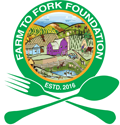Mitigating water stress in wheat (BARI Gom-26) by exogenous application of proline
Keywords:
Proline, Drought, Antioxidant system, WheatAbstract
Wheat, the important cereal crop of Bangladesh, when exposed to drought stress, a significant yield reduction may occur. Literatures showed that proline protects plants against different abiotic stresses like drought. Therefore the present experiment was aimed to investigate the improvement of drought tolerance in wheat by exogenous application of proline. Wheat variety cv. BARI Gom-26 was used as test crop in this study. Treatment combinations consisted of four levels of irrigation (normal irrigation, irrigation missing at vegetative stage, irrigation missing at flowering stage, and irrigation missing at both vegetative and flowering stages) and three concentrations of proline (0, 25 and 50 mM). The results revealed that water stress caused significant reductions in growth, and grain and straw yields of wheat. Water stress also reduced chlorophyll and proline contents, and activities of antioxidant enzymes catalase (CAT), guaiacol peroxidase (POX) and ascorbate peroxidase (APX). On the other hand, exogenous application of proline showed a significant increase in growth and yield of wheat under water stress. These increases were positively correlated with increased levels of chlorophyll and intracellular proline, and enhanced activities of CAT, POX and APX in wheat. The interaction effects of exogenous proline and water stress were significant in aspects of increased plant growth and yield, and enhanced levels of chlorophyll and intracellular proline as well as activities of antioxidant enzymes. Application of 50 mM proline was found to be more effective in improving water stress tolerance. The present study, therefore, suggests that exogenous proline confers tolerance to drought stress in wheat by increasing proline accumulation and antioxidant defense system.
Downloads
Downloads
Published
How to Cite
Issue
Section
License
Copyright (c) 2016 by the author(s). This work is licensed under a Creative Commons.

This work is licensed under a Creative Commons Attribution-NonCommercial 4.0 International License.





















